Get ahead
VMware offers training and certification to turbo-charge your progress.
Learn more
SpringOne2GX kicked off with a bang on Monday night!
The keynote kicked off with Pivotal's own SVP of R&D, Hugh Williams (formerly of e-Bay and Microsoft research) who talked about the ebb (the awkward interruptions in momentum) and flow of software development. Hugh touched on his prior lives at Microsoft (where he helped develop the Bing search engine) and at eBay (a huge Spring user, we learned!) and spoke about what Spring brings to the table: the ability to be nimble, agile.
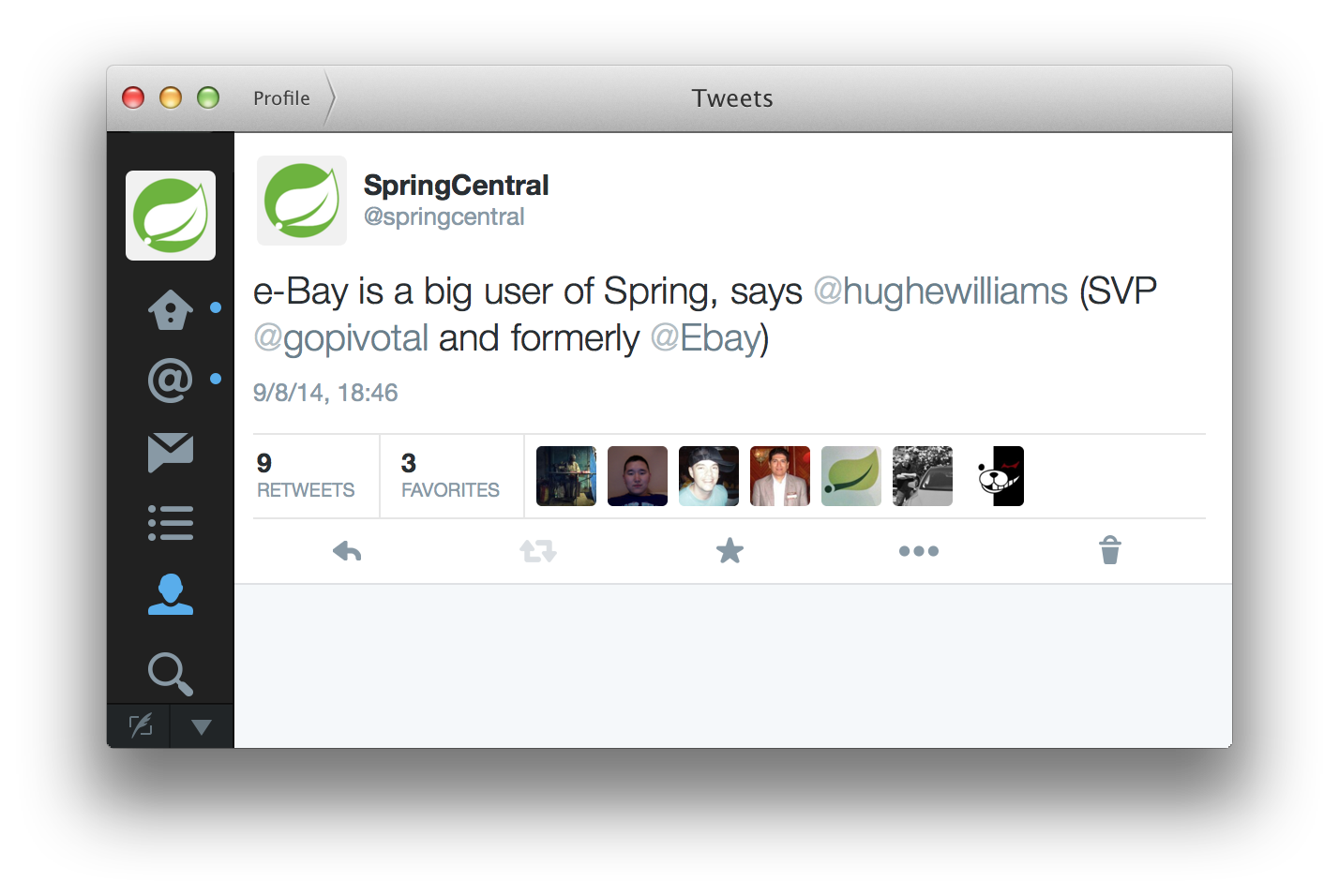
Next up was Spring framework lead [Juergen Hoeller](Spring Juergen) who revisited the Spring IO platform story originally introduced at SpringOne2GX 2013. He introduced the "tree." Third-party dependencies form the roots of the Spring IO platform. Spring Boot, Spring Foundation (the Spring framework and other projects) and the Spring IO Platform distribution provide the stable trunk to support runtimes like Spring XD and Grails. Applications (leaves, in the diagram) grow from those branches, resting on the solid trunk that is Spring Boot.
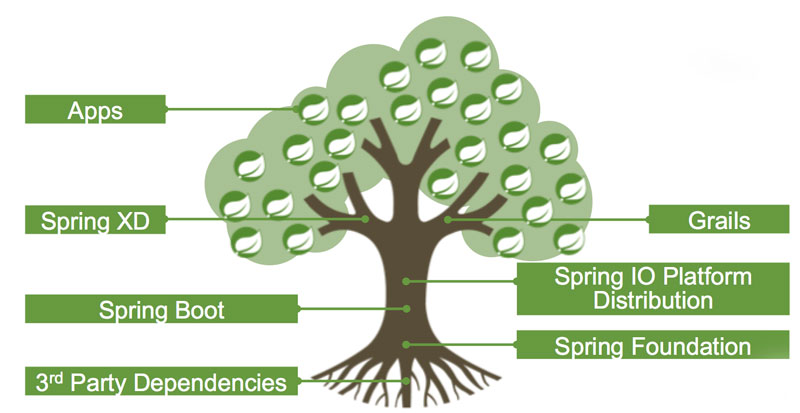
Spring IO is moving quickly, too! Spring IO distribution represents an opportunity to aggregate and harmonize projects with a known release cadence: Spring framework moves conservatively, Spring Boot and Spring Data move agressively. Spring IO represents an alternative release cycle; minor versions will aggregate other minor releases whenever they appear.
Next, the good Dr. Dave Syer took the stage to talk about where Spring Boot (which also debuted at SpringOne2GX 2013, incidentally!) is at today. Spring Boot is now pervasive across all the Spring projects, and has almost 100 contributors! Netflix, he noted, has proven the value of microservices by winning the market with them. But it's not going to be a free lunch: it can be very difficult to get it right, and this is a natural place for Spring Boot to add value and to simplify things. Enter the newly formed Spring Cloud umbrella project. Besides hosting the PaaS-specific connectors formerly under the Spring Cloud mantra, the Spring Cloud project aims to simplify microservice system architectures.
Next up was Netflix's Andy Glover.

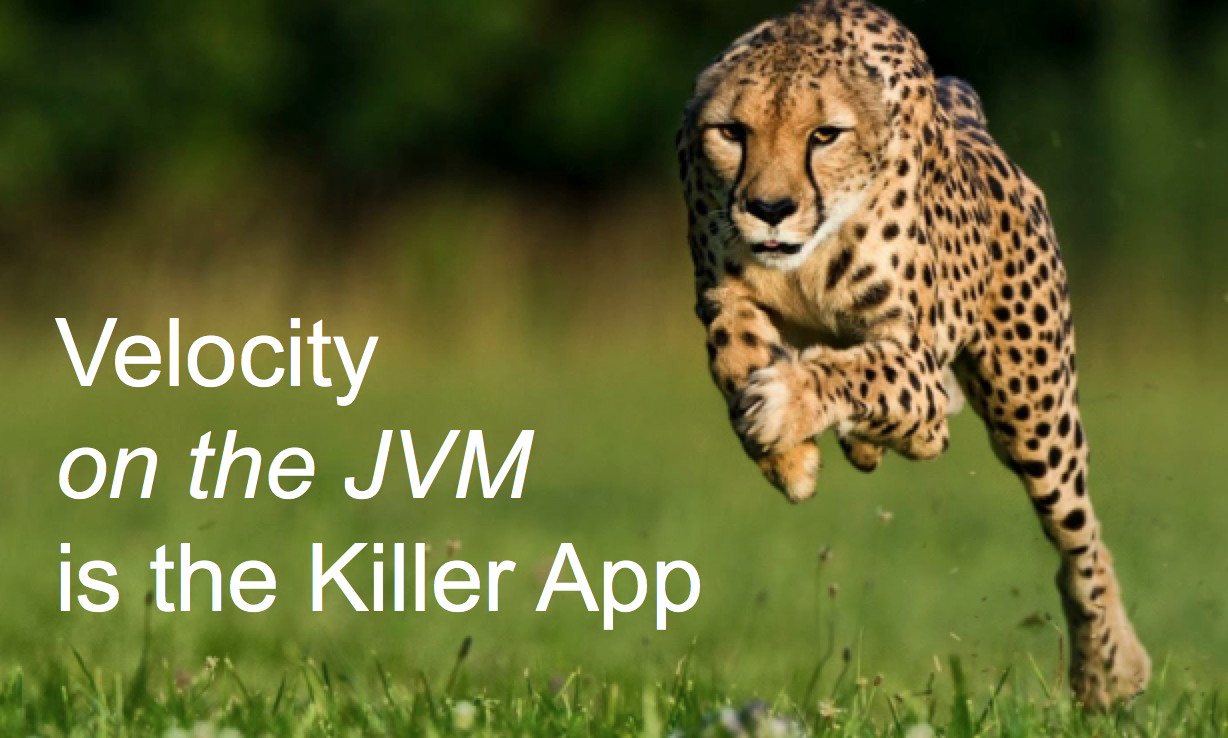
Netflix needed velocity. "Speed is a competitive advantage." Andy's teams looked at technologies like Ruby on Rails and Node.js to regain the velocity they thought missing on the JVM. Today, Netflix uses Spring Boot as the basis of their service architecture because it gives them the scalability and maturity of the JVM and the velocity to deliver.
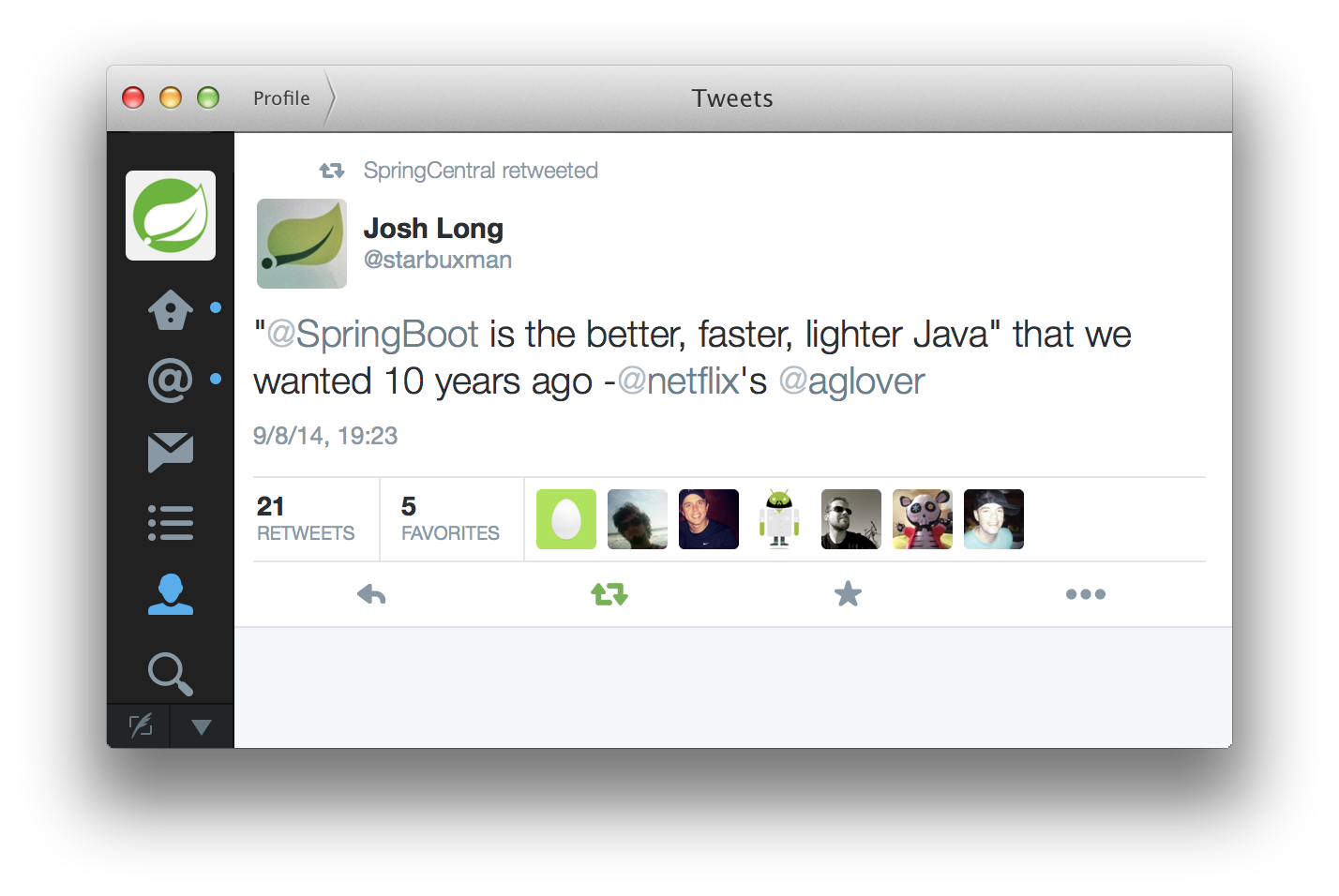
Referring to a book heralding a better way forward when Spring was born, Andy said: "'Spring Boot is the better, faster, lighter Java' that we wanted ten years ago."
Last, but not least, Grails lead (and former Dallas resident!) Graeme Rocher took the stage to give an update on the Groovy and Grails community. Grails 2.4 was just released and is an ongoing maintenance release; it now supports 1100 plugins! Looking forward, Grails 3.0 (which will be based on Spring Boot!) wowed the audience with entire, Tweet-sized, microservices!
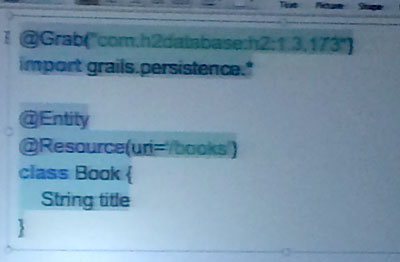
We'll be back with a day 2 wrap-up on everything Spring, Groovy & Grails, Cloud Foundry and Big-data!